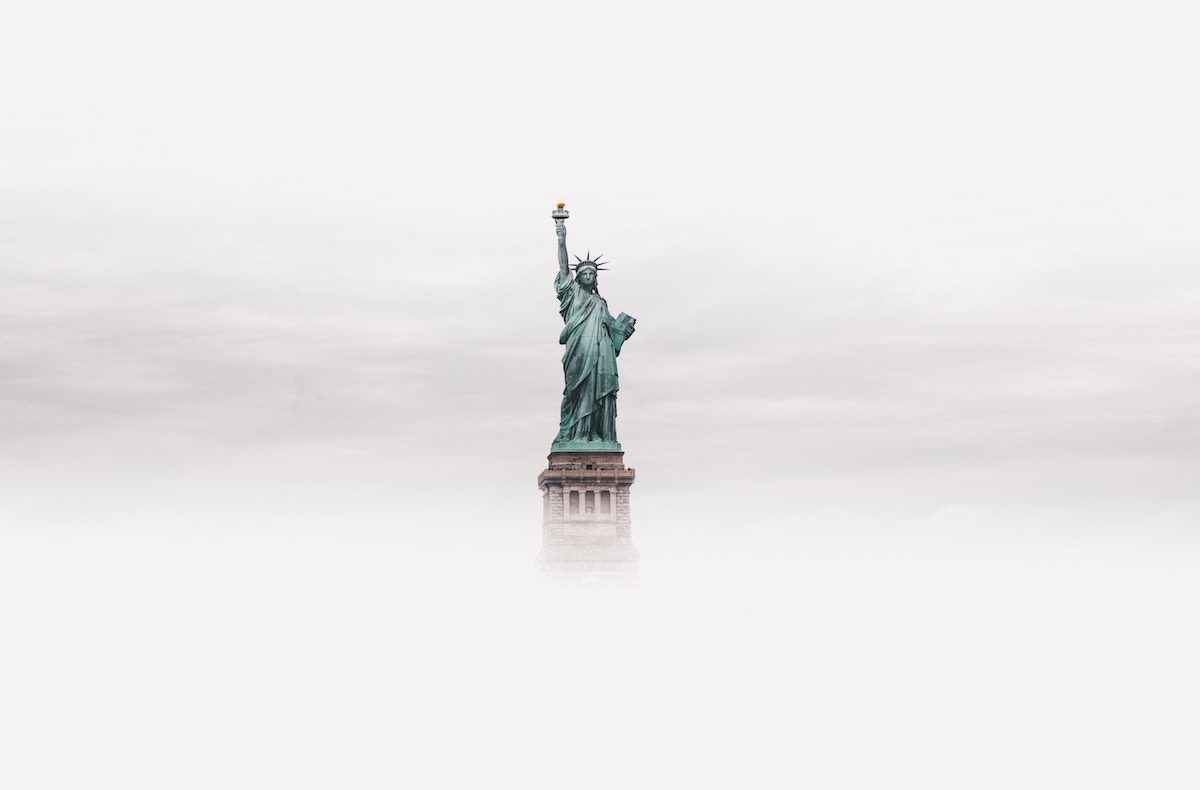Pulitzer Prize-winning author Jon Meacham’s recently released The Soul of America: the Battle for Our Better Angels is the source of conversation in pundit circles these days. For some, The Soul of America is a subtle critique of the Trump administration and its policies.
For others, the book is a reminder that our current political climate, with all of its partisan vitriol, is not new in the continuum of American history, nor is it unique. In other words, and this is the insight to this book, there are progressions and regressions to the American experiment.
According to Meacham:
As a Southerner…I [recalled] William Faulkner’s observation in Requiem for a Nun—that “The past is never dead; it’s not even past,” [and how it] has always struck me as one of the great truths, and the American battles over power and race and history have proven Faulkner right with astonishing regularity.
The Soul of America is one well-regarded scholar’s reflection on this experiment known as America. Meacham reminds his readers that every generation believes its moment in history to be the most significant and maybe challenging, by comparison. He then refutes that generational narcissism by exploring historical epochs that were as tumultuous, maybe even more so.
For example, few of us today are able to comprehend with any intellectual command the existential threat to our country both before and after the Civil War. What Meacham refers to as “the long shadow of Appomattox” picks up on post-war Reconstruction and turmoil that, even still, is unresolved in our nation. It’s a brilliant piece of writing and insight.
Many of us have no concept of the Suffrage Movement or of Woodrow Wilson’s reluctance to advocate for the right of women to vote. And though the Great Depression underwent a bit of national recollection because of the recent Great Recession, few of us today comprehend the complete and total upheaval that the Depression exerted on the national psyche.
That sentiment was poignantly captured by a New York Daily News reporter who observed how many of those unemployed at the time believed that they were the problem. “I haven’t had a steady job in more than two years,” a man facing eviction, along with his family, lamented. “Sometimes I feel like a murderer. What’s wrong with me, that I can’t protect my children?” At its height, over 25 percent of the country’s labor force was out of work—for years at a time—and there were pockets throughout America where that percentage was much higher. We have experienced tumult before.
The author also explores McCarthyism and Jim Crow laws, the purpose of the GI Bill and both the systemic and intentional practices of segregation. In this regard, perhaps the best section of the book is Meacham’s treatment of Lyndon Johnson’s presidency from the assassination of JFK in 1963 through the passage of the Voting Rights Act in 1965.
Johnson was, and still is, a controversial figure in American politics. He was rude, uncouth, had an insatiable appetite for raw power, and was ultimately broken by what many scholars now acknowledge as his mishandling of the Vietnam War. But within the space of twenty-two months, he personally orchestrated passage of both the Civil Rights Act of 1964 and the Voting Rights Act of 1965. The former segregationist lost friends and political support from most of the southern states because of his leadership. But he did the right thing, at that moment, for America.
Throughout the book, readers learn that each epoch is often cruel and unforgiving to innocent people, and we are forced to confront the fact that nearly every one of our elected leaders was flawed, sometimes seriously. But the American story does not end there. If there is an encouraging message to Meacham’s analysis, it falls within the chapter titled, “The First Duty of An American Citizen.”
Though our leaders are often flawed, over and over again, Meacham identifies ordinary citizens who, during each critical moment, get it right, and ultimately push leaders to correct wrongs—the progression of the American experiment. And rather than looking exclusively to politicians to confront our challenges, Meacham describes five of what I will call “responsibilities” of citizenship that ordinary people can practice to improve the quality of life that we, together, share. They are:
1. Enter the Arena
The work begins with political engagement itself. “Politicians will disappoint; that’s inevitable. But they will also, from time to time, thrill.” Pay attention. Listen discriminately. Cast ballots. “To believe something creates an obligation to make that belief known, and to act upon it… .”
2. Resist Tribalism
“Engagement, especially at a time of heightened conflict, has its perils: Those motivated by what they see as extremism on the other side are likely to view politics not as a mediation of difference but as total warfare where no quarter can be given. The country works best, however, when we resist such tribal inclinations.” “Wisdom generally comes from a free (and respectful) exchange of ideas, and there can be no free exchange of ideas if everyone on your side already agrees with one another (emphasis added).”
3. Respect Facts and Deploy Reason
“There is such a thing as discernible reality. Facts, as John Adams once said, are stubborn things, and yet too many Americans are locked into their particular vision of the world, choosing this view or that perspective based not on its grounding in fact but on whether it’s a view or perspective endorsed by the leaders one follows.” “Reform is slow work, and it is for neither the fainthearted nor the impatient.”
4. Find a Critical Balance
“’Whenever the people are well informed they can be trusted with their own government,’ Jefferson wrote in 1789.” Being informed is more than knowing details and arguments. It also entails being humble enough to recognize that only on the rarest of occasions does any single camp have a monopoly on virtue or wisdom.
5. Keep History in Mind
“A grasp of the past can be orienting.” Read history. Work to understand historical moments.
And, if I can be so bold to add a sixth responsibility:
6. Commit to Educating Our Children
American history, in all of its fullness, is poorly taught in our schools. In my community, the first 150 years of our country’s history is taught in eighth grade. A 13-year-old mind is simply too undeveloped to understand the nuances of the Constitution, the beauty of Lincoln’s Emancipation Proclamation, or the achievements and shortcomings of the Industrial Revolution. However, a 13-year-old can begin to learn Civics, i.e., the rights and duties of citizenship as we understand them as Americans. And, once those duties are understood, the work of education about those responsibilities can begin.
Minutes after he was inaugurated, and most surely lucid about the magnitude of the destruction that awaited the country, President Lincoln offered these words for a people that weren’t ready to listen. They are words well worth repeating—to every generation:
We are not enemies, but friends. We must not be enemies.
Though passion may have strained it must not break our
bonds of affection.The mystic chords of memory, stretching
from every battlefield and patriot grave to every living heart
and hearthstone all over this broad land, will yet swell the
chorus of the Union, when again touched, as surely they will
be, by the better angels of our nature.
–Abraham Lincoln, First Inaugural Address, 1861










Appreciate your words of wisdom Jeff.
Very good and timely.
This was a good read and a reminder to me to stick by what my father taught me. Get involved, be open and receptive to others values and beliefs without loosing your identity. If we are to make a change for the better than we have to be part of that change. When talking politics, I choose to engage if I can clearly see it is out of love for our world and country.
God bless us one an all!
Perfect timing and a very good read.
Sadly, respectful, peaceful, “freedom of speech” is NOT the norm at many of our places of learning. It is our hope that the U of D supports equal treatment to ALL parties and that they are not only allowed, but encouraged to speak and debate the issues.
All six points are great and should be remembered. Unfortunately, in my own belief, we have never had such a Constitutional crisis as we have today SINCE the attempt of the southern states to secede from the Union. The Civil War made secession a relatively non-starter in Constitutional politics. The women’s suffrage movement and the Civil Rights movement of the 1960s built upon the shoulders of already established Constitutional law.
But the 2010 Citizens United decision, with the concomitant decisions which followed, introduced a Constitutional crisis which had been building actually since the founding of the country: who has the right to decide? the common people or select (with the question of who does the selecting) individuals and interests and persons who are ‘better’ than the common people (who, thusly, cannot be trusted with such an important and yet delicate matter as governing.) Hamilton and to a lesser extent Washington lost that battle to Jefferson and the “Republicans”, but only briefly. By the time of the Civil War, industry (and the Big Money which funds it) was well underway in the plot to overturn “Jeffersonianism”.
ALL THIS comes to a head with the need, as mentioned above and by Mssr. Bullock and Meachum, for everyone to be educated and involved. IF ‘the common people’ were UNCOMMONLY involved, there would be no “common people”, but a true democracy. Alas, this coming mid-term may be the last chance to return to the democracy lost in 2010.
Excellent and important submission. Thank you.
Thanks Jeff for another call to patience and reflection.
Thanks once again, Jeff – and wonderful post by Kristie – very true in regard to change and also not loosing our identity when getting involved and receptive to others. Sue and I look forward to HC tomorrow and Sat. – the Veterans Center event should be very moving – we just are so overwhelmed by the student diversity on campus and how the students are so polite and engaging with the alums – I am looking forward to seeing “Timtom” if I have it correct at the event – we had such a nice conversation with him after the Investors Lunch! Go Spartans and thanks again for President Bullock and his wonderful leadership and love shown to all UD students!!!
Fantastic summation. As someone who works in the mixing bowel of culture (U.S. Army) this really gets to the point in a feasible and constructive way. Fortunately, among military officers, we tend to find “middle ground” on most issues. This also has a negative tinge as points of disagreement are often plumbed through nuance and avoided or spoken of under the breath in the presence chosen company.
Chaplain (Lieutenant Colonel) Kelly O’Lear
Command Chaplain
Special Operations Command Africa
These views are my own and not those of the U.S. Army or the Department of Defense.
Wow! Great post!
In 1996, I was in Memphis to Dubuque to visit Campus. After experienced Neo-Conservative control ,
struggle against Terror. The regime of terror is still in North Korea, Syria, etc. Detente is urgent to
eternal peace to human kinds.